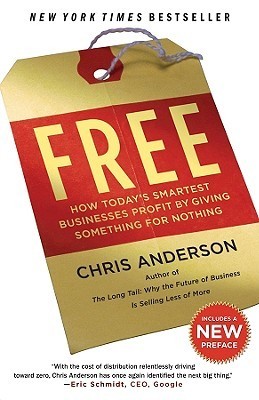What do you think?
Rate this book


304 pages, Paperback
First published January 1, 2009

Radio Broadcast magazine announced a contest for the best answer to the question "Who is to pay for broadcasting and how?" . . . The winning entry sought a tax on vacuum tubes as an "index of broadcast consumption." . . . There were some suggestions that advertising might be the answer, but it was by far from a popular solution. It seemed a shame to despoil this new medium with sponsored messages.

Only thirty-two of the Top 100 companies today make things you can hold, from aerospace and motor vehicles to chemicals and food, metal bending and heavy industry. The other sixty-eight traffic mostly in ideas, not resource processing
He who receives an idea from me, receives instruction himself without lessening mine; as he who lights his taper at mine, receives light without darkening me